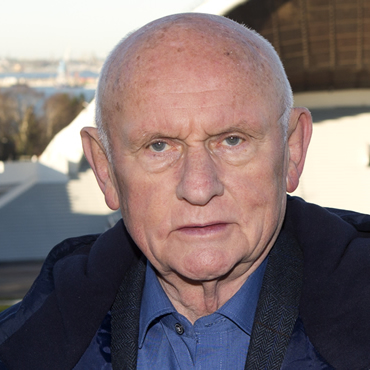- New research on diversity and impact of religious belief in 21st-century Ireland
- The Irish are very welcoming, but not very open to diversity
- Boris Johnson is our biggest threat to peace in Ireland and Europe alike
- All not what it seems behind creche doors
- There may be troubles ahead...
- Lunar landing or loony conspiracy?
- Nigeria needs a peaceful solution
- Soccer really is a sport for all
- Nepalese potato kabab
- Book Review

Michael McGowan
 Twenty years ago I was walking on the Great Wall of China, relishing the stories of my young Chinese guide about the amazing history, culture and influence of their great country. My thoughts were also of the potential of that fascinating giant of a country having a future powerful role on the world stage.
Twenty years ago I was walking on the Great Wall of China, relishing the stories of my young Chinese guide about the amazing history, culture and influence of their great country. My thoughts were also of the potential of that fascinating giant of a country having a future powerful role on the world stage.
What I did not anticipate was that within two decades, China would indeed be on the threshold of becoming the most powerful force on the planet, soon to replace the United States as the number-one world superpower.
The recent visit by Donald Trump to China appears to have been a cultural and political shock for the US president, who is beginning to come to terms with the reality that China’s leader, President Xi Jinping, is about to become the most powerful political figure in the world.
Trump’s China visit brought him face to face with the reality that the claim of the United States to be the world’s top superpower may well be over, or will be very soon.
During the 2016 US presidential election campaign, Trump compared China’s trade practices as “rape” and “the greatest theft in the history of the world”. But after meeting Xi in person, he rather changed his tune and described Sino-American relations as “great”.
One thing that is absolutely clear is that China and the United States are now vying for global hegemony.
While the US under President Trump appears to be growing more and more detached from the rest of the world, there is no doubt that China has a strategy to have more and more influence on global affairs.
The ‘Chinese Dream’ is the name of this strategy of increasing the country’s world influence, and China’s investment in other continents is evidence of this.
China has adopted a policy of both inward and outward investment. Its inward investment is largely to get access to raw materials, minerals and resources it does possess itself, in order to increase its own industrial production.
Its outward investment is to develop a greater world influence not only in trade and seeking bigger markets, but also to have a greater political influence in the world.
In the poor countries of Africa, there has been substantial and rapid investment by China without the democratic and accountable procedures of the kind of aid that has come from the EU.
China’s investment in the UK, meanwhile, is across the board – including the ownership of a top soccer club.
China also has ambitions in space. The rapid development of China’s private space industry is part of its communist government’s push to integrate civilian and military co-operation in technology. The hope is that the more nimble private sector can develop technologies to support the country’s growing space programme, which aims to put a person on the moon by 2030.
The increasing influence of China across the world has even led to speculation that Beijing had a hand in the removal of Robert Mugabe in Zimbabwe.
A recent visit to Beijing by one of the architects of the coup stoked suspicions that its officials had been involved, but China dismissed this as an attempt to sully its reputation and derail Sino-African relations.
Yet the notion that Beijing appeared to have been tipped off about the coup in Zimbabwe underlines China’s growing importance on the world stage.
President Trump may well reflect on the aim of China to put a person on the moon by 2030, and that before that date China may have superseded the United States as the world’s dominant power.
Michael McGowan is a former MEP and president of the Development Committee of the European Parliament.
_







